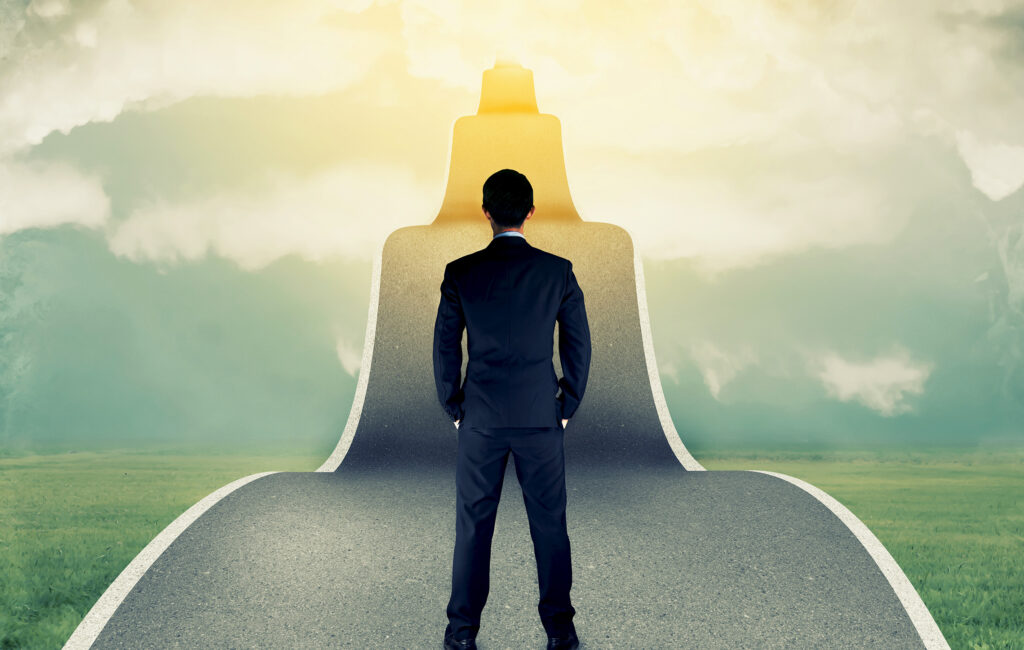Human beings have always been connected to their past in one way or another. The quest to stay connected with our history has given birth to the genre of historical fiction. This genre, with its imaginative powers, cast a spell on its readers. Whether it’s the pre-pharos era, the evolving medieval period, or the modern tech-inspired fast life, homo sapiens (the scientific name for humans) have always possessed a curiosity to dig deep into their past. As a result, historical fiction became one of the most popular reading genres.
What Exactly is Historical Fiction?

You must be wondering what this genre is all about? Is it based on real events or fictitious? Let’s take a plunge.
According to Dictionary.com, historical fiction is defined as:
“The genre of literature, film, etc., comprising narratives that take place in the past and are characterized chiefly by an imaginative reconstruction of historical events and personages.”
Let’s make it simpler.
Historical fiction must be based on events, figures, or places set in the past. Among many good things about this genre, the best thing is that you can add your imaginative elements to the main plot as much as you wish. It doesn’t necessarily need to be all true; that’s why there is reason to call it fiction.
For readers seeking an immersive journey through time, the best fiction book series within the historical fiction genre offers a captivating escape. But what separates a truly remarkable historical novel from the rest? In this exploration, we’ll uncover the key elements that breathe life into the past on the printed page.
Unparalleled Research
At its core, a best fiction book series in the historical fiction domain transports readers to a bygone era with astonishing authenticity. This requires exhaustive research by the author into the cultural, political, and socio-economic aspects of the period. The most beloved novels, like Hilary Mantel’s acclaimed Wolf Hall trilogy depicting the rise of Thomas Cromwell (over 5 million copies sold), pay meticulous attention to historical details. This credibility grounds the narrative, allowing readers to immerse themselves fully.
Strong, Layered Characters
While the historical setting is crucial, the characters ultimately propel the best fiction book series forward. Memorable historical novels feature complex personalities that reflect their era’s norms and transport them in relatable ways. In Kristin Hannah’s genre-defining The Nightingale (over 4 million copies sold), the indomitable spirits of Vianne and Isabelle Mauriac demonstrate remarkable courage in the face of Nazi occupation. The juxtaposition of their moral dilemmas against the harsh realities of World War II France makes them emblems of resilience that resonate with modern readers.
The Blending of Fact and Fiction
Skillful authors of the best fiction book series seamlessly blend documented events with fictional characters and storylines. This creative alchemy kindles our intellectual curiosity about real history while allowing the invented narratives to capture our fascination. Colson Whitehead’s metaphorical masterpiece The Underground Railroad (over 2.5 million copies sold) exemplifies this ethos, weaving the terrifying reality of slavery into an audacious allegory of resistance and hope.
A Supreme Perspective
While thoroughly grounded in a particular era, great historical fiction transcends its time to illuminate universal human truths. The best fiction book series offers a piercing insight into the immutable experiences that unite our ancestors and us – love, loss, resilience, ambition. Elizabeth Gilbert’s kaleidoscopic The Signature of All Things (over 1 million copies sold) is a prime example, using 18th-century botanical exploration as a lens into one woman’s radical journey of self-discovery across decades and continents.
The Highest Caliber of Storytelling
Ultimately, the best fiction book series within historical fiction must deliver a narrative experience that utterly transports the reader. From enigmatic first lines to seismic plot twists, these novels are works of consummate storytelling craft. Michael Punke’s riveting The Revenant (over 1 million copies sold after the 2015 film adaptation) masterfully chronicles a fur trapper’s grueling quest for survival in 19th-century America. The propulsive tale’s visceral sense of danger immerses readers in the harsh wilderness and the human struggle.
While exceptional research and historical accuracy are crucial, the union of these storytelling elements elevates a historical novel into the echelon of the best fiction book series. By exploring resonant human experiences through a meticulously recreated lens of the past, these great tales remain seared into our modern imaginations.
Here are some top-rated and acclaimed historical fiction book series recommendations to consider:
1. The Outlander Series by Diana Gabaldon
This sweeping romantic series blends time travel, adventure, and vivid 18th-century Scottish history. With over 25 million books sold across eight novels so far, it’s one of the biggest best-fiction book series of recent times. Gabaldon immerses readers in the Renaissance era’s political intrigues and the lives of highland clans.
2. The Century Trilogy by Ken Follett
This ambitious trilogy spanning the 20th century includes the novels Fall of Giants, Winter of the World, and Edge of Eternity. With over 26 million copies sold, it follows five interrelated families across two world wars and the Russian Revolution. Follett’s attention to historical detail makes this an epic best-fiction book series.
3. The Thomas Cromwell Trilogy by Hilary Mantel
As mentioned earlier, Mantel’s Wolf Hall, Bring Up the Bodies, and The Mirror & the Light compose a celebrated best-fiction book series. With over 5 million copies sold, it offers a dimensional portrait of the controversial Thomas Cromwell navigating the intrigue-laden court of Henry VIII.
The Starz TV series massively boosted the popularity of Gabaldon’s Outlander books. Follett and Mantel won the prestigious Man Booker Prize for novels in their series, driving literary acclaim.
4. The Ibis Trilogy by Amitav Ghosh
This best fiction book series is centered on the 19th-century opium trade between India and China. With over 1 million copies sold, books like Sea of Poppies and River of Smoke provide a postcolonial perspective on globalization’s roots.
5. The Aubrey-Maturin Series by Patrick O’Brian
Completed across 20 novels, this long-running series immerses readers in the grand British naval tradition and the lives of ship captain Jack Aubrey and surgeon Stephen Maturin during the Napoleonic Wars. It’s regarded as one of the great best fiction book series in historical fiction.
Whether exploring landmark historical events or unique cultural perspectives, these captivating book series have enthralled millions of readers globally with their rich historical fiction narratives.
Envision Your Dreams on Screen

When an author crafts worlds from the dusty archives of history, breathing life into forgotten eras with their storytelling powers, there are those images, those visions, that inevitably blur the lines between the waking world and the dreaming. And sometimes, if the stars align, those dreams take shape beyond the printed page.
Diana Gabaldon created her Outlander tapestry from the pulse of ancient Scottish heart – clansmen and lasses, whisky, and wool. But it was the wandering souls of Claire and Jamie whose threads ignited a fire across the silver screen when Starz gave them life in 2014. For six magnificent seasons, Caitriona Balfe and Sam Heughan have made the heathered hills shiver once more.
Ken Follett’s Century trilogy marched in lockstep with history’s greatest events – the jackboots of war and the calls for revolution. While his grand vision has yet to be realized, the novel Winter of the World debuted as a two-part television drama in 2012, streaming across European screens with bayonets fixed.
In the mystical shadows of Hampton Court’s maze, Hilary Mantel resurrected a ghost – Thomas Cromwell, the architect of a kingdom’s transformation. Like all spirits worthy of the name, he could not be contained by the rituals of paper and ink alone. The BBC’s 2015 Wolf Hall miniseries, starring Mark Rylance’s outstanding performance, provided a glimpse into those daemons that haunted the Tudor age.
The opium haze and trade winds that rose through Amitav Ghosh’s Ibis Trilogy came to life in Indian living rooms as his Sea of Poppies bloomed into a beautiful television tale in 2017. Under the prolific eye of Bollywood’s Guru Dutt, the 19th-century subcontinent was reborn.
And who can forget the salty Aubrey-Maturin epic, which covered seven seas and twenty volumes in Patrick O’Brian’s universe? The ninth story, The Far Side of the World, was adapted into the film Master and Commander in 2003. As Russell Crowe’s bronzed forehead creased the prow, spectators heard the canon roar as if for the first time.
For those who harness the spellbinding power of story, there is no greater pleasure than to look upon their invented realities blossom into existence in front of the world’s astonished eyes. These big and little screen chronicles, refracting through the magic of camera lenses, allow us to briefly experience an idealized, dreamlike version of life. For a moment, we get to live in the grand and impressive fictional realities created by talented writers and filmmakers.
FAQ’s – Frequently Asked Questions
1. What makes a historical fiction novel worth reading?
Historical fiction books are appealing because they reflect on true events and combine with rich storytelling, taking readers to different eras. Authenticity, the elements that make a historical fiction book memorable and interesting, are its well-developed characters and evocative surroundings.
2. How do I identify a best fiction book series?
Look for well-researched stories that authentically reflect the time period in which they are set. A high-quality historical fiction work will have vivid descriptions, compelling character motives, and a strong attention to detail.
3. Are certain themes frequently covered in historical fiction?
Historical fiction frequently explores issues like power struggles, societal conventions, cultural disputes, and human perseverance. These themes enable authors to examine universal truths through the prism of historical events, making their works more relevant and thought-provoking.
4. What factors should I consider when selecting a historical fiction book to read?
Consider your preferences in terms of time and setting. Investigate the author's background and reputation for accurate historical portrayal. Read reviews and synopses to see if the book matches your preferred storytelling style and subjects.
5. Do historical fiction novels have educational value?
While historical fiction is primarily intended to entertain, it frequently integrates real-life events, characters, and societal dynamics, providing readers with insights into many cultures and times of history. Many readers see historical fiction as an opportunity to go deeper into and learn more about historical themes.

